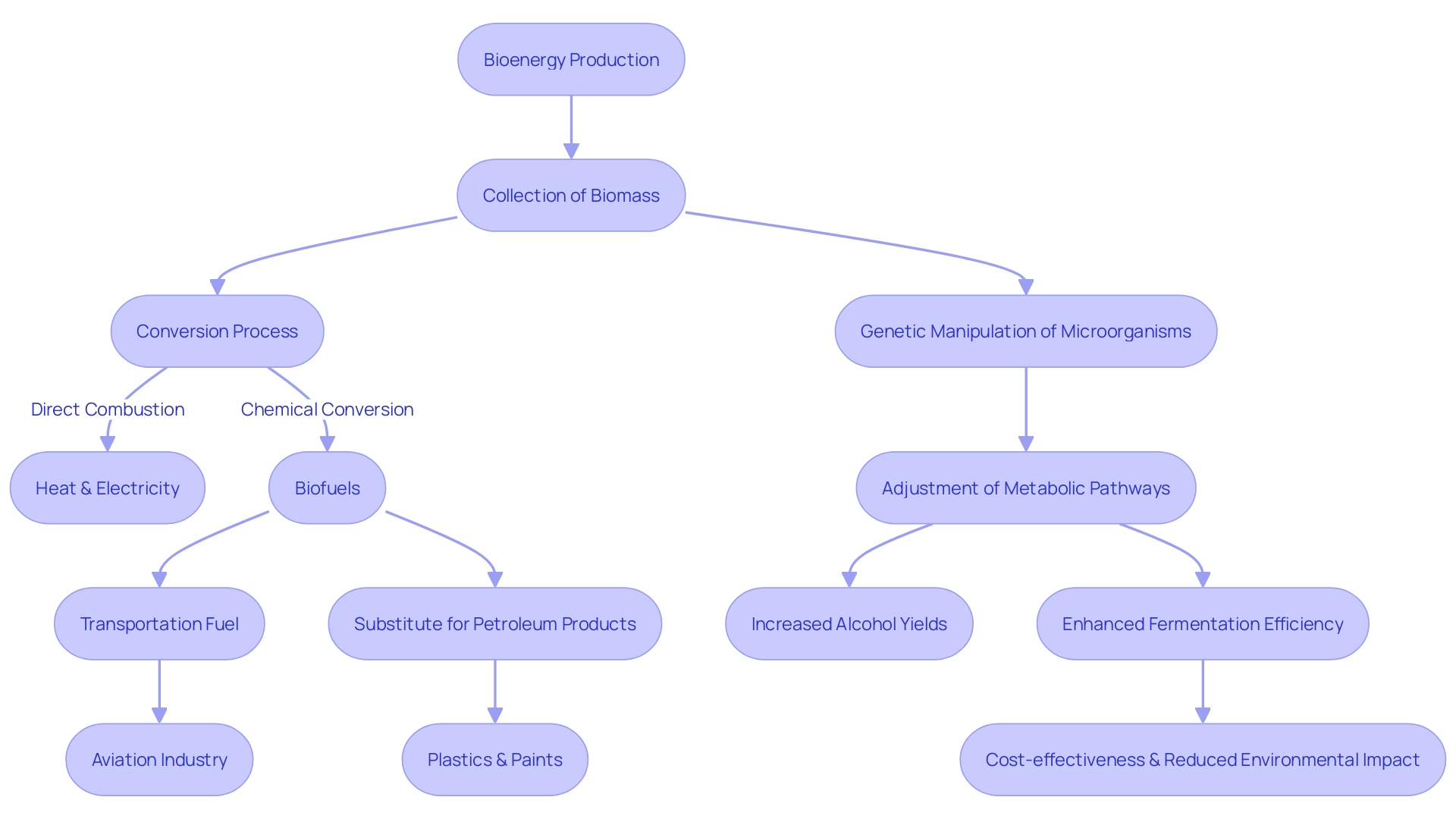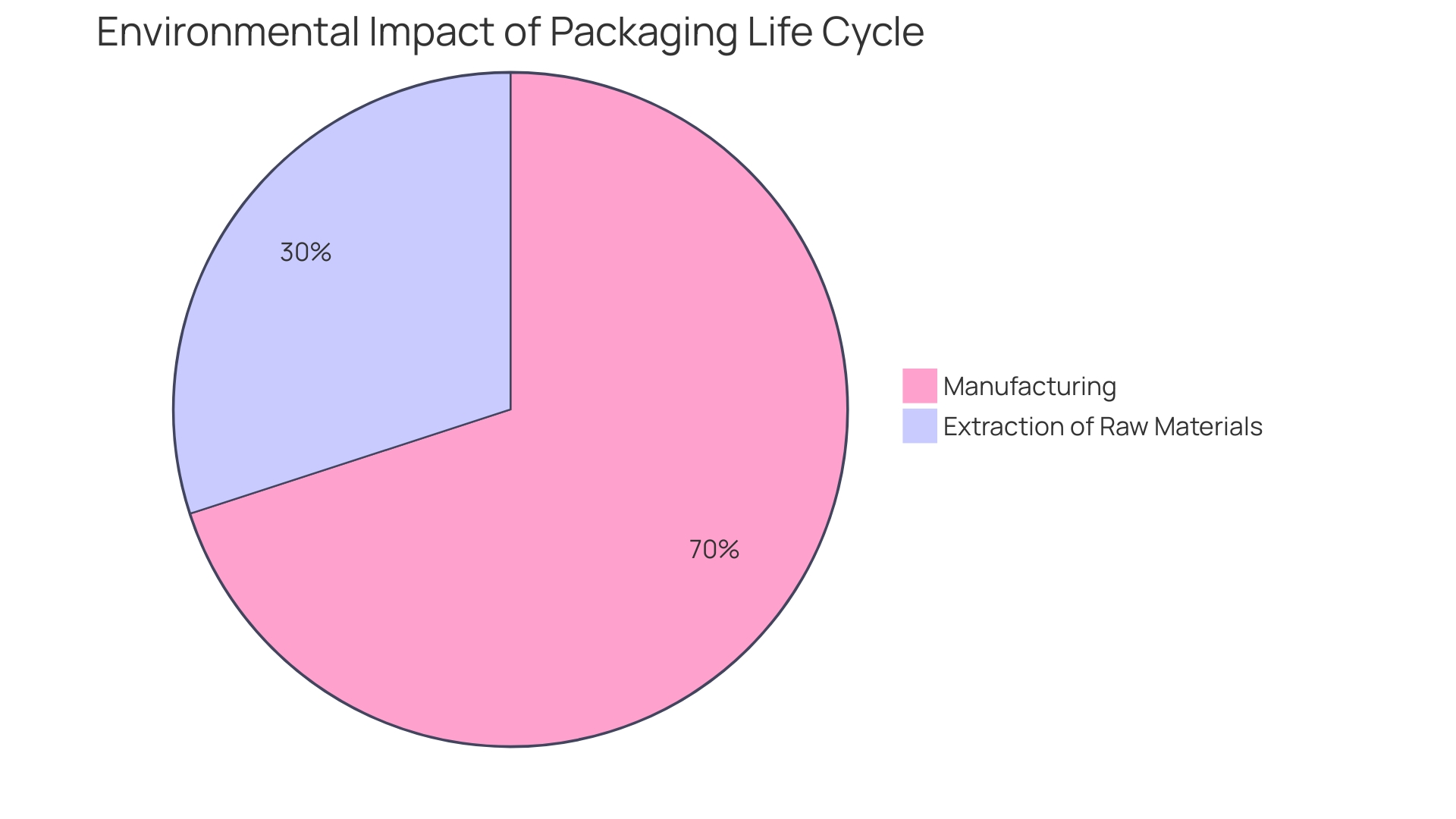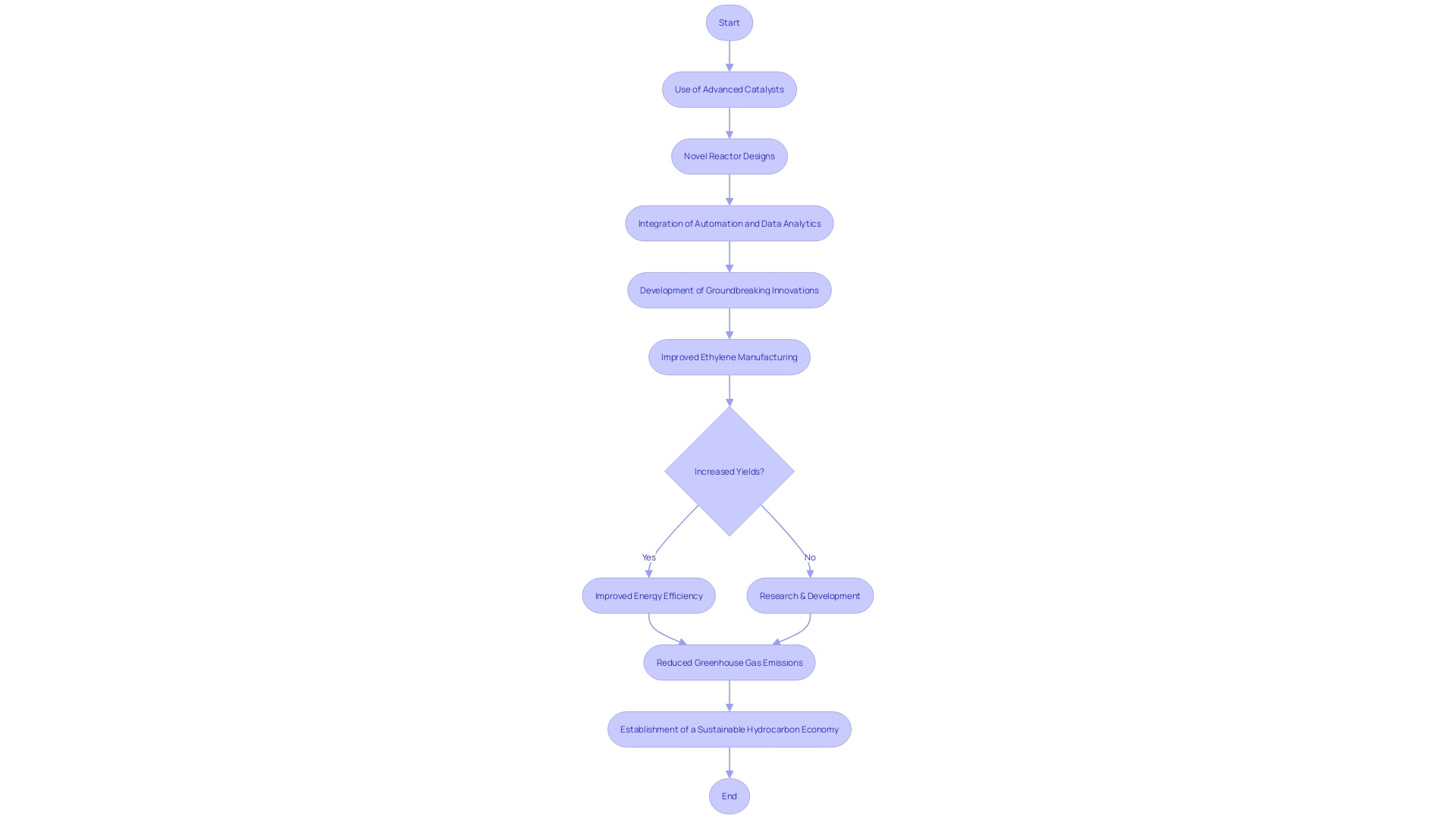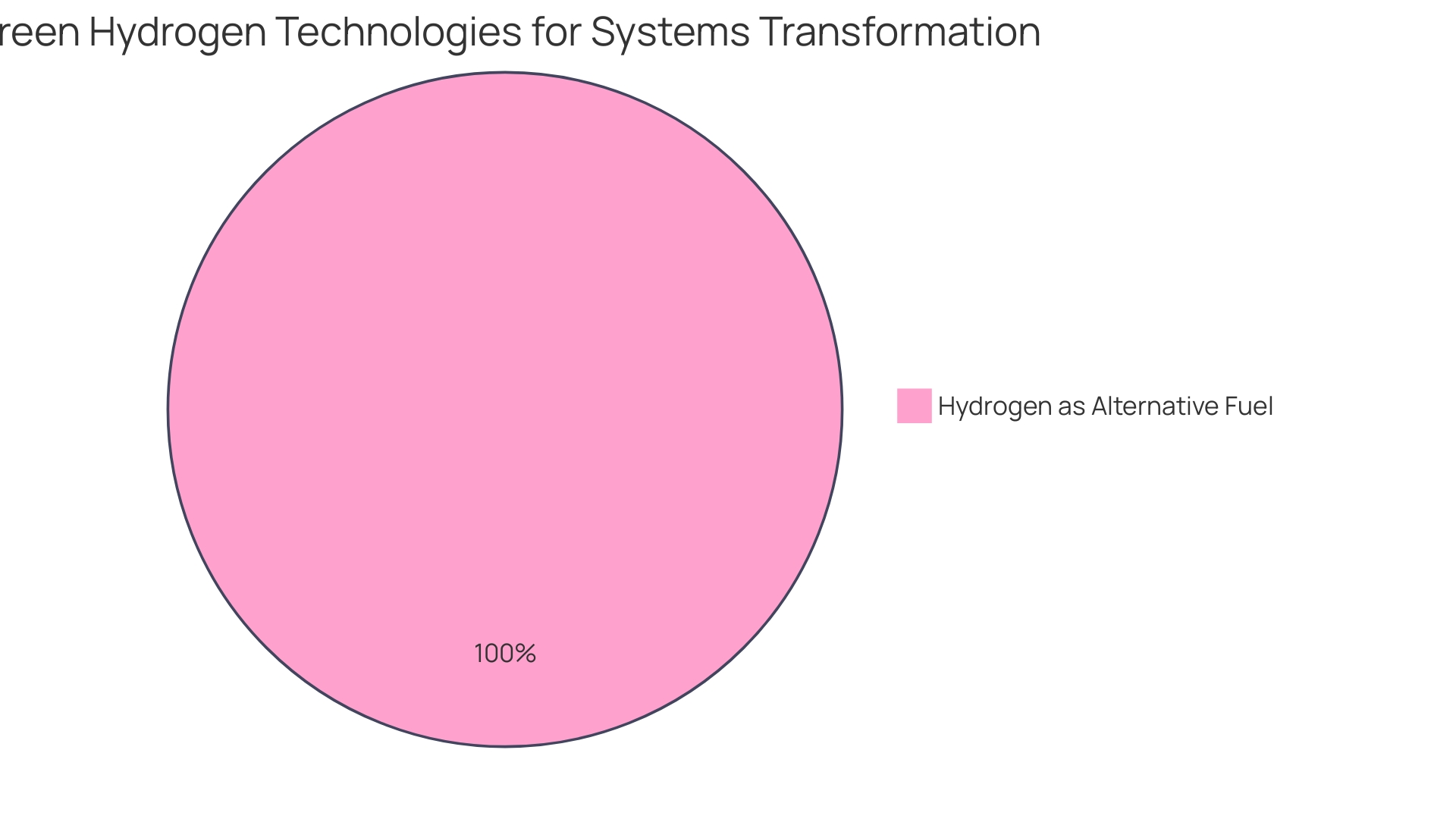Introduction
The renewable fuels industry is constantly evolving, with a focus on enhancing efficiency and sustainability in the ethanol conversion process. This article explores the current methods of ethanol production, highlighting the shift towards enzymatic conversion techniques and the potential of alternative fuels derived from ethanol processes. It also delves into the role of metabolic engineering in increasing ethanol yields and addressing the challenges of climate change.
The article discusses the importance of selecting appropriate feedstocks, including second-generation biomass, to optimize efficiency and sustainability. Additionally, it explores the environmental impact of ethanol production through life cycle assessments and emphasizes the advancements in technology that are transforming the industry. The article concludes by addressing the challenges and future directions in ethanol conversion, highlighting the industry's commitment to sustainability and innovation.
Overall, this article provides technical insights and analysis for an audience with a deep understanding of the renewable fuels industry.
Current Methods of Ethanol Production
The sustainable fuels industry continues to develop, leveraging advanced technologies to refine the biofuel conversion process, with an emphasis on enhancing efficiency and sustainability. Conventional approaches such as yeast-driven fermentation have historically served as the foundation of alcohol synthesis; nevertheless, the sector currently also utilizes enzymatic conversion methods. These contemporary approaches provide noteworthy advantages, particularly the capacity to decompose intricate sugars into alcohol, which conventional fermentation techniques cannot always effectively accomplish.
The recent docking of the Laura Maersk, the first methanol-run freight ship, at the Port of Felixstowe, symbolizes a shift towards cleaner fuel alternatives in the shipping industry. Its operation on methanol, a chemical that naturally degrades in the environment, highlights the potential of alternative fuels derived from other processes involving ethanol. Such innovations are crucial as companies like Maersk aim to attain net-zero greenhouse gas emissions, with a commitment to integrate 12 methanol-enabled ships into their fleet.
Investments in renewable energy, including ethanol, are significant, with data from 2013-2022 showing substantial financial commitments in USD million for renewable power capacity, emphasizing the sector's growth. In parallel, the Bonsucro Standard promotes agricultural practices that support the long-term viability of sugarcane farming, which is relevant given that cachaçaâa spirit made from sugarcaneâmust comply with MAPA guidelines for public health and integrity assurance.
In the wider context, aviation fuels (SAFs) are recognized as the current best alternative to fossil fuels for long-distance aviation. Similarly, in maritime transportation, sustainable methanol and synthetic natural gas arise as feasible alternatives, reflecting the progress in manufacturing methods of biofuel on land. The demand for sustainable fuels is expected to grow, with road transport leading the charge due to established markets for biodiesel and bioethanol and a global impetus for decarbonization.
These developments resonate with the insights of industry experts like Ric, who brings over four decades of experience in renewable energy and environmental policy, and Tom, with his extensive background in energy and utility project development. Their proficiency, in conjunction with the operational understanding of experts such as Brian from Enviva, corresponds with the movement towards digitalization in process development—integrating scientific knowledge and technical know-how with information flow, manufacturing, and automation to optimize commercial biofuel production.

Metabolic Engineering for Biofuel Production
Metabolic engineering plays a crucial role in advancing conversion processes, which are essential in the realm of renewable energy sources. By utilizing genetic manipulation, scientists have successfully adjusted and enhanced the metabolic pathways in microorganisms, resulting in a noteworthy boost in alcohol yields and fermentation efficiency. The use of these techniques is particularly important as it addresses the challenges of climate change and the pressing need for decarbonization. With about two-thirds of anthropogenic CO2 emissions resulting from the combustion of fossil fuels, the transition to biofuels is crucial.
The manufacturing of ethanol from renewable feedstocks is an eco-friendly alternative to first-generation biomass sources like corn, which frequently clash with food supply and have significant environmental effects, such as land degradation and water pollution. Notably, the synthesis of chemically produced sugars, as opposed to agricultural ones, has emerged as a beneficial approach, boasting advantages such as a high synthesis rate, lower water usage, and minimal land requirements.
In the context of chemical engineering, the principles applied in metabolic engineering are indispensable for achieving efficiency, cost-effectiveness, and reducing environmental impact. This approach is not only theoretical but also practical, as seen with the successful application of engineered microbial platforms for the generation of jasmonates. These platforms circumvent the limitation of extracting these compounds from plants by producing them in an environmentally friendly manner.
The implications of these advancements are wide-ranging, including the potential impact on industries that are challenging to decarbonize, like aviation. Sustainable aviation fuel, defined by the International Civil Aviation Organization as renewable or waste-derived fuel that meets sustainability criteria, is increasingly recognized as a viable solution. By using metabolic engineering, the development of biofuels could play a crucial role in accomplishing the objectives established by airlines for the utilization of eco-friendly fuels, considering that the aviation sector contributes approximately 2% towards carbon dioxide emissions related to energy worldwide.
The integration of synthetic biology and genetic modification in biofuel creation is a testament to the power of chemical engineering to solve global challenges. By emphasizing cleaner cycles, the industrial biotechnology sector has the potential to greatly decrease CO2 emissions and substitute fossil feedstocks with sustainable and renewable resources.

Feedstocks for Ethanol Production: First and Second Generation
Choosing appropriate feedstocks is crucial for optimizing the efficiency and sustainability of the process. The process begins with the conversion of raw materials, known as feedstocks, into sugar syrups, which are then fermented to produce ethanol. The initial biofuel efforts predominantly used first-generation feedstocks such as corn and sugarcane. Nevertheless, these materials have faced criticism for vying with food manufacturing as a result of their demands for arable land and water.
The evolution of biofuels has led to the exploration of second-generation feedstocks, which include non-edible plant biomass like poplar trees, cellulosic biomass, and agricultural residues. These materials avoid the ethical concerns of using food resources for energy. Concurrently Enhanced Lignocellulosic Fractionation (CELF) biorefineries have been developed to fractionate lignocellulosic biomass efficiently. This allows for the production of various bio-based products from different components of the biomass, enhancing the overall sustainability of the process.
Moreover, advancements in industrial biotechnology have enabled the microbial conversion of organic substrates, which contributes to reducing CO2 emissions and replacing fossil feedstocks. The increased efficiency and yields from these second-generation feedstocks are coupled with ecological benefits such as land and biodiversity conservation, as noted by the significant reductions in accidents and higher wages for workers in certified operations.
The sustainability credentials of renewable fuel have been underscored by the Climate Ethanol Alliance, which promotes renewable fuel as a viable alternative to oil. The role of ethanol in reducing air pollution is evident as over 98% of U.S. gasoline contains this substance, with various blends such as E10 and E85 available for consumption. These advancements demonstrate an ongoing innovation in the bio-based economy, with a distinct emphasis on attaining decarbonization and promoting cleaner fuel cycles.
Life Cycle Assessment of Ethanol Production
Life cycle assessments (LCAs) are essential tools for comprehending the environmental impact of ethanol manufacturing, a process that begins with the extraction of raw materials. For instance, in the packaging industry, the initial phase of raw material extraction, which involves the use of resources like plastic, glass, metal, or paper, can account for a significant environmental footprint. This is exemplified by PET bottles, where almost 84% of the environmental impact arises from the manufacturing of packaging itself. Therefore, the utilization of recycled materials is a critical strategy for mitigating such impacts.
Throughout the manufacturing phase, which encompasses design and processing, different packaging materials demonstrate unique greenhouse gas emissions profiles, as indicated by a recent study. These findings underscore the need for comprehensive LCAs that incorporate harmonized methods and data. However, these assessments often rely on rigid assumptions about inputs, such as the type of energy used, and require manual adjustments in software, which can be cumbersome.
The biofuel industry has experienced substantial growth, with global production set to reach approximately 110 billion liters in 2020. Over the last decade, the market has expanded by about 33%, with the United States increasing its share from under 20% to over 40%. The top producers, Poet, ADM, and Valero, dominate around 17% of the global output. Moreover, Brazil distinguishes itself not just as the largest exporter but also the biggest importer of the biofuel, possessing 30% of the worldwide share.
Ethanol's viability as an alternative to oil has been reaffirmed through more than two decades of real-world application, contributing to climate benefits, rural development, and energy independence. As the discussion on climate change progresses, a renewable fuel is resurfacing as a crucial contributor in reducing carbon emissions from transportation, with organizations such as the Climate Ethanol Alliance promoting its significance in creating a sustainable future. Ryan Hanrahan, a seasoned farm policy news editor, emphasizes the importance of evidence-based policymaking in this domain, noting the introduction of High-Octane Fuels as a crucial step towards achieving climate objectives.

Environmental Sustainability of Ethanol
The progress in alcohol conversion processes have been pivotal in driving sustainability within the bio-based economy. Ethanol production has traditionally been energy-intensive, but recent innovations are shifting this paradigm. Through the integration of renewable energy sources like solar and wind power, plants are reducing their dependence on fossil fuels and minimizing their carbon footprint. Pioneering projects, such as the collaboration between Fertiberia and Heineken Spain, exemplify this shift. They have successfully replaced natural gas with green hydrogen in the cultivation of malting barley, significantly lowering the release of harmful substances and setting a precedent for the industry.
Furthermore, the employment of carbon capture and utilization (CCU) technologies is becoming a game-changer in reducing greenhouse gas emissions from ethanol manufacturing. The Climate Ethanol Alliance, comprising of organizations like Pannonia Bio and the Renewable Fuels Association, supports this transition by advocating for evidence-based policy changes that encourage the uptake of sustainable practices.
Sustainable farming practices and responsible land management play a crucial role in this transition. The Bonsucro Standard, for instance, promotes a zero-deforestation policy and ensures that agricultural conversion does not come at the expense of natural ecosystems. As a result, certified operators and workers benefit from safer working conditions, higher wages, and enhanced efficiency.
Furthermore, the incorporation of agriculture 4.0 technologies, relying on large-scale data, is transforming the application methods in farming, resulting in enhanced and eco-friendly cycles. This approach aligns with the broader goals of the industry, as demonstrated by Heineken's commitment to using 100% renewable energy in production by 2025 and achieving a net-zero carbon footprint across its value chain by 2040.
Ethanol has already made significant progress as a substitute for oil, with a two-decade track record that includes reduced net CO2 releases, particularly from second-generation biofuels obtained from organic waste. Continuous technological innovation is crucial in maintaining ethanol's role as an environmentally friendly answer for addressing climate change and reducing carbon emissions in transportation, with the capacity to achieve a 90% decrease in CO2 emissions compared to conventional fossil fuels.
As we keep observing these transformative changes, it is clear that the future of biofuel manufacturing lies in a multi-faceted method that integrates renewable energy, carbon reduction strategies, and environmentally-friendly agricultural practices, ultimately contributing to a cleaner, greener planet.
Technological Advancements in Ethanol Conversion
Advancements in the production technologies of biofuel are revolutionizing the industry, enabling more effective and eco-friendly processes. Advanced catalysts are being used to improve chemical reactions, resulting in increased yields of the biofuel. Meanwhile, novel reactor designs are improving the conversion of feedstocks into an alcohol fuel, minimizing energy consumption during the process.
The integration of automation and data analytics has revolutionized the production of ethanol, enabling real-time monitoring and precise control of manufacturing parameters. This technological leap contributes to more consistent quality and increased yields. One example is the precise control of ingredient ratios in continuous inline beverage blenders, which ensures uniform product quality.
Moreover, the manufacturing of ethylene, a crucial petrochemical obtained from ethanol, is experiencing noteworthy alterations. Conventional ethylene manufacturing is carbon-intensive, but groundbreaking innovations are being developed to generate ethylene without fossil fuels. This advancement could significantly decrease the release of greenhouse gases linked to the manufacturing of ethylene.
The aviation fuel market is also exploring an environmentally friendly option to reduce carbon dioxide emissions, with major airlines committing to fuel targets. Ethanol's role in the bio-based economy continues to expand, with two decades of evidence supporting its benefits for climate, energy independence, and air quality.
These advancements in the conversion of ethanol and the generation of ethylene are vital for establishing a sustainable hydrocarbon economy and facilitating the decarbonization of various industries.

Case Study: Integrated Biorefineries and Biochemical Conversion
A pivotal study from the National Renewable Energy Laboratory (NREL) unveils the cutting-edge advancements in integrated biorefineries, specifically focusing on innovative Co-solvent Enhanced Lignocellulosic Fractionation (CELF) technology. This approach is revolutionizing ethanol manufacturing by leveraging the upfront fractionation of lignocellulosic biomass. It enables the concurrent derivation of multiple value-added products from distinct biomass components, thereby enhancing efficiency and sustainability.
The study highlights a dramatic shift from the traditional reliance on food crops like corn and sugarcane, which were processed into sugar syrups for biofuel production. Modern biorefineries have adopted CELF-based processes that utilize non-food biomass, such as corn stover and sugarcane bagasse, thus addressing concerns of food versus fuel and ensuring a more sustainable bioeconomy.
The integration of pretreatment, enzymatic hydrolysis, and fermentation technologies in biorefineries not only boosts ethanol yield but also contributes to rural development and energy independence. Moreover, this comprehensive strategy has been recognized as financially feasible, with the ability to substantially decrease carbon discharges. This is particularly relevant in the context of aviation, where sustainable fuel options are urgently sought to mitigate the sector's 2% contribution to global energy-related CO2 emissions.
Real-world applications and over two decades of its use have solidified its status as a credible alternative to oil. Continuous innovation within the bio-based economy has led to notable environmental benefits. The Climate Ethanol Alliance, with key industry players like Pannonia Bio and the Renewable Fuels Association, champions ethanol as part of transport decarbonization strategies, emphasizing the importance of evidence-based policymaking.
In light of current environmental challenges, the global community acknowledges the imperative to rapidly decarbonize. About 66% of human-caused CO2 releases come from burning fossil fuels. Therefore, industrial biotechnology, particularly microbial conversion, is recognized for its role in replacing fossil feedstocks with renewable resources, conserving energy, and curbing CO2 emissions.
By means of such interdisciplinary research and collaboration, the shift towards a more sustainable and environmentally conscious energy future is becoming more and more tangible, highlighting the crucial role of biofuel in this transformative journey.
Challenges and Future Directions in Ethanol Conversion
The development of alcohol conversion technologies is crucial in the context of contemporary chemical engineering, where sustainability intertwines with innovation. The obstacles in the manufacturing of ethanol are diverse, encompassing the availability and cost-effectiveness of feedstock. Yet, the industry is steadily overcoming these hurdles through strategic collaborations and technology integration, echoing the successful case of Fertiberia and Heineken Spain. Their initiative to transition to green hydrogen for fertilizer illustrates a commitment to reducing carbon footprints and adopting agriculture 4.0 technologies.
In the midst of changing consumer tastes towards various and new alcoholic drinks, as observed in millennials' move away from traditional beer and wine, the need for a fuel source has increased. This has stimulated the proliferation of advanced biofuels. The incorporation of state-of-the-art electrochemical conversion methods is another advancement, emphasizing the industry's drive for more sustainable and efficient manufacturing techniques.
Reflecting on the broader chemical engineering landscape, experts emphasize that the discipline's core principles are integral to addressing societal challenges. Maximizing process efficiency, enhancing cost-effectiveness, and diminishing environmental impacts are universally acknowledged objectives within the field. These principles are visibly applied in the pursuit of innovative ethanol conversion processes.
The potential of these emerging technologies is further underscored by ongoing research and development efforts aimed at fine-tuning the production of biofuels. The industry's trajectory is clear: to achieve greater sustainability and meet the growing demand for renewable energy sources. As companies strive for transparency and stakeholder collaboration, the ability to track the emissions and origins of products is becoming increasingly salient, driven by the digitalization of supply chains.
In conclusion, the continuous evolution of the ethanol industry, supported by relentless innovation and adherence to fundamental chemical engineering principles, remains crucial in the quest for a more sustainable future, as evidenced by the dynamic landscape of renewable energy and societal expectations.

Conclusion
The article provides a comprehensive overview of the current methods of ethanol production, highlighting the shift towards enzymatic conversion techniques and the potential of alternative fuels derived from ethanol processes. It emphasizes the role of metabolic engineering in increasing ethanol yields and addressing the challenges of climate change. The importance of selecting appropriate feedstocks, including second-generation biomass, to optimize efficiency and sustainability is also discussed.
The article delves into the environmental impact of ethanol production through life cycle assessments and emphasizes the advancements in technology that are transforming the industry. It concludes by addressing the challenges and future directions in ethanol conversion, highlighting the industry's commitment to sustainability and innovation.
Overall, the article provides technical insights and analysis for an audience with a deep understanding of the renewable fuels industry. It highlights the continuous evolution of the ethanol industry, supported by relentless innovation and adherence to fundamental chemical engineering principles, as crucial in the quest for a more sustainable future.




